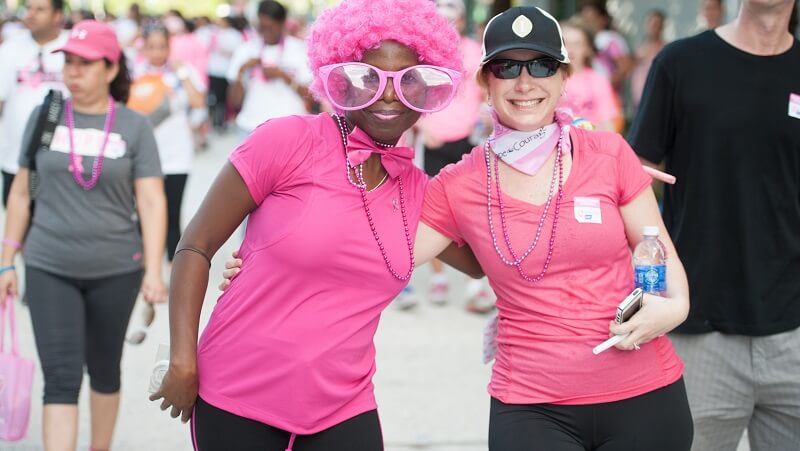
Welcome to the mesmerizing world of the Florida Keys – each a jewel in its own unique way. From Key Largo to Key West and a few miles beyond, this enchanting chain of islands lures visitors with its tropical beauty, vibrant culture, and intriguing names that leave you curious for more. In this article, we embark on a journey to navigate the crown jewels of Florida, uncovering the secrets and stories behind these famous keys.
Discover the captivating allure of Key Largo, known for its highly coveted coral reefs and world-class diving opportunities. Delve into the rich history of Key West, where Hemingway penned his masterpieces and exuberant sunsets light up the night.
Explore the natural wonders of Big Pine Key and marvel at the unique wildlife found in the nearby national refuge. Each key has its own distinct personality and attractions that beckon adventure seekers and relaxation enthusiasts alike.
Come along as we delve into the intriguing names of the Florida Keys. From Spanish influences to legendary pirates, the origins of these names are just as fascinating as the destinations themselves. Get ready to be enchanted by the captivating charm of the Florida Keys, where dreams become reality and memories are made.
Facts About The Florida Keys’ Names
Keys are soil and sand on top of coral heads. Islands can be called Keys but true Keys are on coral and islands are made from other natural materials.
Florida has about 1700 islands. Very few are inhabited. Over half are considered to be Florida Keys.
Other Noted Facts about the Florida Keys include:
- There are 42 bridges connecting 43 Keys.
- The longest bridge is the Seven Mile Bridge connecting Marathon with Little Dock Key.
- About 800 Keys are known and named.
- Most of the Keys are in Monroe County, Florida.
- The Florida Keys have a close connection to Cuba. Many refugees from Cuban political unrest landed in Key West. The culture there is markedly influenced by Cuban immigrants.
- There is only one international airport in the Keys located at Key West. Marathon does have an airport for private planes.
- From 1912 until the 1935 Hurricane, the main Keys were connected by Henry Flagler’s Overseas Railway.
- The arguably worst hurricane to hit Florida was the 1935 Labor Day Hurricane with 200 MPH winds that killed over 400 people.
- Many of the Keys are named for actions, Spanish words or Native American meanings. For instance, a “Garden Key” may be a small island settlers grew crops. Matacumbe comes from Spanish, etc.
History and Significance of the Florida Keys
The Florida Keys hold a rich history and a significant place in the state’s cultural heritage. These islands stretch for about 120 miles off the southern tip of Florida, forming a natural wonderland that has captivated explorers, artists, and travelers for centuries. The keys were formed by the remains of ancient coral reefs and have evolved into a unique ecosystem teeming with diverse marine life and lush vegetation.
The first inhabitants of the Florida Keys were the Calusa and Tequesta Native American tribes, who relied on the abundant resources of the surrounding waters for their sustenance. European explorers, including Spanish conquistadors, arrived in the 16th century, leaving their mark on the islands. The Keys became a vital hub for maritime trade, and their strategic location made them susceptible to the exploits of pirates and privateers.

Exploring the Unique Names of the Florida Keys
The names of the Florida Keys are as intriguing as the islands themselves, offering a glimpse into their colorful past. Many of these names have Spanish origins, reflecting the influence of early Spanish explorers and settlers. For example, “Key Largo” is derived from the Spanish word “largo,” meaning long, which aptly describes the island’s elongated shape.
Other keys bear the names of notable figures who played a significant role in the history of the region. Key West, the most famous of the Florida Keys, was named after English businessman John W. Simonton’s hometown of Key West, New York. The island’s association with literary icon Ernest Hemingway has also contributed to its allure.
Overview of the Main Keys in the Florida Keys Archipelago
The Florida Keys archipelago is comprised of several main keys, each with its own distinct character and attractions. Let’s take a closer look at some of the most popular and larger keys in this island chain.
Key Largo the Diving Capital of the World
Key Largo, the first and northernmost key, is renowned as the “Diving Capital of the World.” Its crystal-clear waters and abundant coral reefs make it a paradise for divers and snorkelers. The John Pennekamp Coral Reef State Park, located off the coast of Key Largo, is the first underwater park in the United States and offers a chance to explore the vibrant marine life that inhabits the area.
Islamorada is The Sport Fishing Capital of the World
Islamorada, located between Key Largo and Marathon, has earned the title of “The Sport Fishing Capital of the World.” Anglers from around the globe flock to this key in pursuit of trophy fish such as marlin, sailfish, and tarpon. Islamorada also boasts beautiful beaches, luxury resorts, and excellent dining options, making it a favorite destination for relaxation and adventure.

Marathon is the Haven for Boating and Nature Enthusiasts
Marathon, situated in the middle of the Florida Keys, is a haven for boating and nature enthusiasts. The city is home to the iconic Seven Mile Bridge, one of the longest bridges in the world, offering breathtaking views of the turquoise waters below. Visitors can explore the vast natural beauty of the area by kayaking through the mangrove forests or visiting the Dolphin Research Center, where they can interact with these intelligent creatures.
Big Pine Key and the Lower Keys – Key Deer and Other Natural Wonders
Big Pine Key and the Lower Keys offer a unique opportunity to explore the natural wonders of the Florida Keys. The National Key Deer Refuge on Big Pine Key is home to the endangered Key deer, a species found only in this region. Nature lovers can also explore the pristine beaches of Bahia Honda State Park or venture further off the beaten path to discover secluded islands and hidden coves.

Key West Known as The Southernmost Point of the Continental United States
Key West, the southernmost key, exudes a vibrant and laid-back atmosphere. Known for its colorful architecture, lively nightlife, and artistic community, Key West has long been a haven for writers, artists, and dreamers. Visitors can explore the historic Old Town, visit the Ernest Hemingway Home and Museum, or simply relax on the stunning beaches and enjoy the breathtaking sunsets that have inspired generations.
Dry Tortugas National Park is a Remote Historic Island Paradise
Located about 68 miles west of Key West, Dry Tortugas National Park is a remote and pristine island paradise. Accessible only by boat or seaplane, the park is home to Fort Jefferson, a massive 19th-century fortress that stands as a testament to the region’s military history. Snorkeling enthusiasts will be delighted by the vibrant coral reefs and crystal-clear waters that surround the islands, offering an unparalleled underwater experience.
More Florida Keys With Unique Names
The list of Florida Keys below is in alphabetical order so you can find them easily by name. For their exact location in the Keys, our Mile Markers of the Florida Keys can be referenced.
Here is a more exhaustive list of named keys and islands in the Florida Keys, including the Dry Tortugas.
Bahia Honda Key – State Park and beaches here are superb.
Ballast Key – actually considered the southernmost point of the US, despite Key West claims.
Bamboo Key
Bay Key

Big Munson Island
Big Pine Key – famous for the Key Deer species.
Big Torch Key
Bobalu Key
Boca Chica Channel Key
Boca Chica Key
Boca Grande Key – Not the Boca Grande near Charlotte Harbor.
Boot Key
Bow Channel Key
Christmas Tree Island – nickname for Wisteria Island for the trees there.
Clive Key
Conch Key
Cook Island
Cottrell Key
Cow Key
Craig Key – good seafood restaurant there by the same name.
Crane Key
Crawfish Key
Crawl Key
Cudjoe Key – Air Force station located on this Key.
Deer Key
Dredgers Key
Duck Key – Hawk’s Kay Resort here.
East Rockland Key
East Summerland Key
Fat Deer Key
Fiesta Key
Fleming Key
Geiger Key

Grassy Key – Dolphin research center here.
Halfmoon Island
Hogfish Key
Hospital Channel Key
Howard Key
Howe Key
Ibis Island
Indian Key
Inner Kemp Channel Key
Kemp Island
Key Largo – The largest of the Keys and considered the First Key.
Key West – 25% of the population in the Keys is on Key West.
Knights Key
Knockemdown Key
Layton
Lignumvitae Basin Keys
Lignumvitae Key
Little Crawl Key
Little Duck Key
Little Knockemdown Key
Little Money Key
Little Munson Island
Little Pine Key
Little Rabbit Key
Little Torch Key
Little Water Key
Long Island
Long Point Key
Lower Matecumbe Key
Lower Sugarloaf Key
Man Key

Man of War Key
Marathon – Marathon is generally considered to be halfway to Key West. It is also the home to some of the best resorts in the Keys.
Marlin Key
Middle Channel Key
Middle Nest Key
Middle Torch Key
Missouri Key
Money Key
No Name Key – made a name for the bar named No Name Pub!
North Nest Key
Ohio Key
Ohio Missouri Key
Old Dan Bank
Outer Kemp Channel Key
Park Island
Park Key
Peck Key
Pelican Key
Perky Island
Pigeon Key – Historic Pigeon Key housed the men working of Flagler’s East Coast Railway.
Plantation Key – Next to Key Largo.
Rabbit Key
Raccoon Key
Ramrod Key – MM 26-27.3
Rockland Key
Saddlebunch Keys – multiple smaller keys
Sawyer Key
Scout Key
Seven Mile Bridge (connects Marathon to Little Duck Key) MM 47 in Marathon.
Shark Key
Shrimp Key
Sigsbee Park
Snipe Keys
South Nest Key
Spanish Harbor
Spanish Harbor Key
Stock Island – next to Key West with our favorite Hogfish Grill.
Summerland Key
Sunset Key – One of the best restaurants in the Keys is here called Latitudes. Of all the names of the Florida Keys, this may be the most appropriate. Many sunsets watched over this island from Mallory Square in Key West.
Sunshine Key
Swordfish Key
Tank Island
Tea Table Key
Toms Harbor Keys
Torchwood Island
Trumbo Island
Upper Matecumbe Key
Upper Sugarloaf Key
Vaca Key
Water Key
West Rockland Key
West Summerland Key
Whipray Basin Keys
Windley Key
Wisteria Island
Woman Key
Woman Key Channel Key
The Dry Tortugas
Loggerhead Key – The largest of the seven islands forming the Tortugas. This is where Fort Jefferson is located.
Garden Key
Bush Key
Long Key
Hospital Key
Middle Key
East Key

Discovering the Magic of the Florida Keys
Florida Travel Blog spends at least 20 weeks a year traveling. Our favorite trek is the two or three times per year visit to the Florida Keys.
There is truly something magical about this tropical wonderland. It makes no difference of age, interests, gender, abilities or time of year, there is something unique about your first step onto one of the Florida Keys.
Within a few days of our very first trip to the Keys some 40 years ago, we started planning when we could go again. There is nothing like the atmosphere, beauty, simplicity and historic culture of the Florida Keys.
While the names of the Florida Keys are diverse and generally have a meaning, they are reflective of the cultures who also loved that Keys.
Originally published at https://floridatravel.blog/what-are-the-names-of-the-florida-keys/
The post Navigating the Crown Jewels of Florida: What Are The Names of the Florida Keys? first appeared on Miami in News.
Travel - Miami in News originally published at Travel - Miami in News


